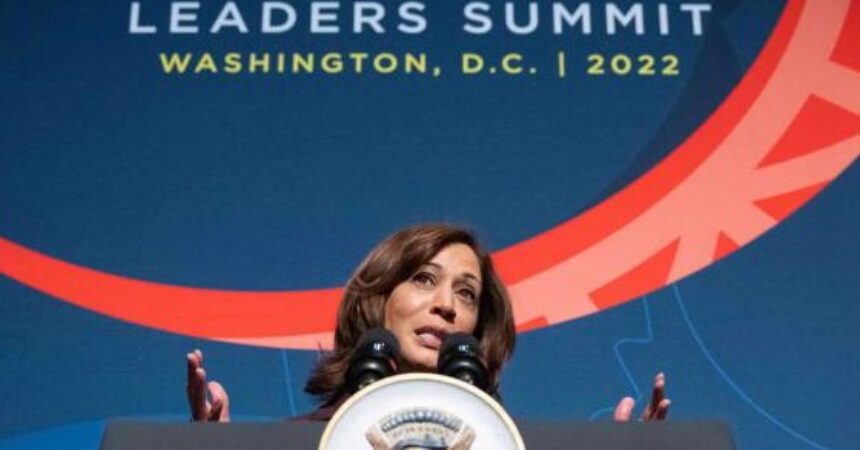
VP Harris unveils $1B African investment during historic continent visit

By Stacy M. Brown
NNPA Newswire Senior
National Correspondent
@StacyBrownMedia
Vice President Kamala Harris’ historic trip to Africa continued with the launch of global initiatives on the economic empowerment of women, totaling more than $1 billion.
America’s first Black female vice president spoke fervently during the trip about how “immensely powerful and moving,” the visit to the Motherland was.
She further was moved while visiting Ghana’s Cape Coast Castle, where the vice president reflected on the painful horrors of where heartless slave owners captured their prey.
“The horror of what happened here must always be remembered,” Harris stated. “It cannot be denied. It must be taught. History must be learned.”
Harris and President Joe Biden have made outreach to Africa an important initiative of the administration.
In addition to Ghana, the vice president visited Tanzania and Zambia. In each country, Harris touted investments that would bring economic and gender equity to Africa.
The vice president convened a roundtable with several African women business owners where the discussion centered on how America and private-sector businesses could form a partnership with African nations that would advance gender equality.
“Promoting gender equity and equality is a cornerstone of U.S. foreign policy in Africa and around the world,” administration officials said in a Fact Sheet. “Advancing the economic status of women and girls is not only a matter of human rights, justice, and fairness—it is also a strategic imperative that reduces poverty and promotes sustainable economic growth, increases access to education, improves health outcomes, advances political stability, and fosters democracy.”
The digital gender gap undermines women’s full participation in the 21st century economy, officials said.
Globally, approximately 260 million more men than women were using the internet in 2022—and this gap has increased by 20 million in the last three years.
The gap is especially acute across Africa, where International Telecommunication Union data show that 66 percent of women do not use the internet.
To address this disparity, Harris pledged that the administration would continue to work with other governments, private sector, foundations, and multilateral organizations to help close the digital divide, improve meaningful access to equitable digital finance and other online services, and address social norms that prevent women from participating fully in the digital economy.
More broadly, the Biden-Harris administration would continue to promote the economic empowerment of women, the vice president stated.
In support of those goals, Harris announced a series of investments and initiatives that total $1 billion.
She also made a series of announcements to foster women’s political, economic, and social inclusion in Africa, building upon initiatives launched at the U.S.-Africa Leaders’ Summit last December, including the Digital Transformation with Africa (DTA) Initiative.
Harris made clear that education remains key.
She hammered home that point as a message to Republican governors who continue to ban history in school curriculums.
“All these stories must be told in a way that we take from this place — the pain we all feel, the anguish that reeks from this place,” Harris reflected as she traversed Cape Coast Castle.







